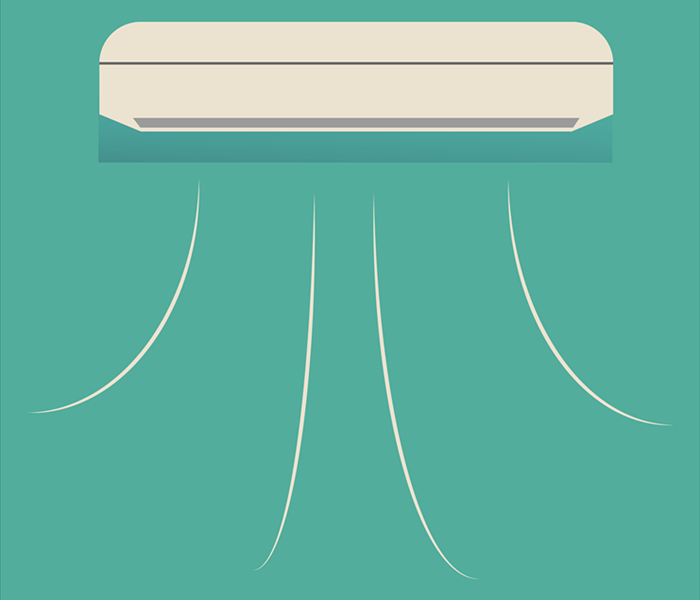Understanding HVAC Hazards
5/11/2020 (Permalink)
In order to keep businesses cool throughout the warm summer season that is upon us, our HVAC (heating, ventilation, and air conditioning) systems will be working nonstop. What you may not know is that with frequent use, HVAC systems can actually be fire hazards. We usually think of electrical malfunctions, complications involving cooking equipment, or careless accidents as the catalysts of commercial fires. Even though complications involving HVAC systems are not the first cause of commercial fires that comes to mind, fires of this nature can be devastating for businesses. It is beneficial for commercial businesses to gain awareness of common fire hazards associated with HVAC systems in order to understand how to effectively protect against significant fire damage.
Three Common Hazards
One way in which HVAC systems can be fire hazards is if the system has a leaking fuel line. HVAC systems house flammable fuels, including gas, petroleum, and oil, which can easily catch fire if the fuel line leaks upon suffering damage. This fire hazard can be avoided by making sure that your commercial business’ HVAC system and fuel line receive regular, routine maintenance. Regularly scheduled maintenance is incredibly important in protecting your business from a fire due to an HVAC system’s leaking fuel line because leaking fuel lines can often go unnoticed.
Damaged electrical connections within an HVAC system can also be a fire hazard due to the prevalence of exposed or burnt electrical wires. Over time, electrical connections loosen, which result in damaged wires, thus increasing the risk of a fire igniting. A common sign of damaged electrical connections within an HVAC system is the smell of burnt plastic, which is due to the melting of the plastic coating on electrical wires. In the event that you notice this smell in your business’ building, it may be a sign that your HVAC system has damaged electrical connections and therefore, needs to be repaired or replaced in order to avoid a dangerous fire.
Oftentimes, HVAC systems are stored in closets or storage areas inside of commercial businesses. As a result, they may be situated too close to other objects, such as cardboard boxes, crates, or miscellaneous equipment. Under this condition, the HVAC system is more susceptible to damage and, if a fire were to ignite, it could easily spread to the surrounding objects, thus creating a larger, more dangerous fire. This increases the likelihood of the fire spreading to other areas of your business, which can be devastating. Keep the area around HVAC systems clear in order to protect your business from this hazard.
Experienced a Fire?
Has your commercial business experienced a fire due to an HVAC hazard? If so, remember to call SERVPRO. SERVPRO’s team of trained fire and water restoration specialists are standing by to quickly and efficiently restore your commercial business back to normal after suffering a fire loss and resulting water damage.





 24/7 Emergency Service
24/7 Emergency Service
